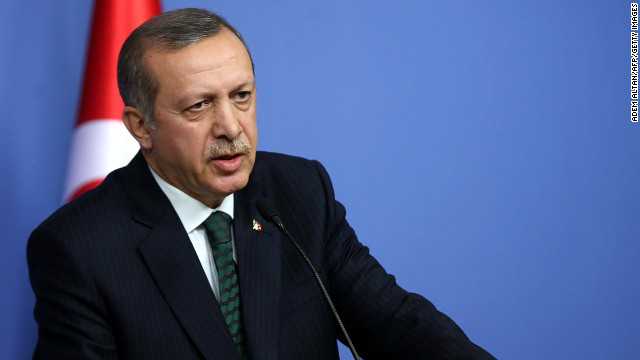ADL National Director Abraham Foxman says ‘there comes a point at which it becomes useless to have a conversation.’
By Natasha Mozgovaya
On the fringes of the Washington meetings of Turkish official delegations, there is usually a special place for outreach with the American Jewish community. But several Jewish groups intend to skip the meeting Wednesday evening with members of the Turkish ruling AKP (Justice and Development Party). The America Israel Political Action Committee (AIPAC), B’nai Brith International and the Anti-Defamation League (ADL) have decided to decline the invitation to protest the deteriorating relations between Ankara and Jerusalem.
Ties between Israel and Turkey have been in decline since Israel launched a three-week military operation in Gaza in December 2008, aimed at halting rocket fire on its southern communities. Tensions between the two formerly strong allies were exacerbated when nine people were killed during violent clashes with Israeli troops aboard a ship carrying aid to Gaza.
“I believe in dialogue and meetings but there is a point at which it becomes useless to have a conversation,” ADL National Director Abraham Foxman told Haaretz on Wednesday.
“You can disagree with Israeli government and its policies but why should you cancel visit of Turkish teachers and scholars to Yad Vashem [Israel’s national Holocaust memorial]? I read that the prime minister of Turkey compared the Star of David to a swastika – it’s ugly and anti-Semitic, it’s what our enemies did. So ‘yesh gvul [there’s a limit].”
Foxman said that he would be happy to resume the outreach meetings once the Turkish government restored ties with Israel.
“Let them first reconcile with Israeli government, and them I’ll be delighted to talk to them,” he said. “But at the moment they’ve decided to use Israel as a whipping boy and provoke negative attitudes in Israel”
The American Jewish Committee (AJC), however, decided to attend the meeting, believing that traditional ties should not be abandoned hastily.
“We’ve had an increasingly rough dialogue with leaders in Turkey, but we believe that we want to take an opportunity to deliver a tough message”, AJC spokeswoman Alex Weininger told Haaretz. “There is a history of relations between the U.S. and Turkey and Israel and it shouldn’t be easily discarded.”
Turkey was also the subject of strong words from Congress on Wednesday, at a bipartisan press conference on the Hill in support of Israel’s right to defend itself.
Rep. Mike Pence (R-Indiana) warned Ankara that “There will be a cost” if Turkey keeps on its current course of “growing closer to Iran and more antagonistic to the State of Israel”.
Rep. Shelley Berkley (D-Nevada) added that, “If Israel is at fault in any way, it is for falling into the trap that was set for them by Turkey. The Turks have extraordinary nerve to lecture the State of Israel, when they are occupiers of the island of Cyprus, where they systematically discriminate against the ecumenical patriarch, and they refuse to recognize Armenian genocide. And this is the country that not only funded but sanctioned the flotilla. They did not do this for humanitarian reasons. They did this to provoke an international confrontation. As far as I’m concerned, Turkey is responsible for the nine deaths aboard that ship. It is not Israel that is responsible. Israel’s troops were attacked”.
A letter currently circulating these days on the Hill in support of Israel in the wake of the flotilla raid has now provoked another letter, by the J Street organization, urging Congressmen not to rush to sign the original letter of support.
“The blockade of Gaza was instituted to stop terrorists from smuggling weapons into Gaza to murder innocent civilians,” said the first petition. “The several dozen who attacked the Israeli soldiers were not peaceful aid workers, but extremists who sought to aid the Iran-backed terrorist Hamas regime in Gaza. The U.S. should make every effort to thwart international condemnation and focus the international community on the crimes of the Iran-backed Hamas leadership against Israel and the Palestinian people”.
J Street has urged Congressmen not to sign the letter, saying it is counterproductive and does not deal with the issue of the Israeli blockade on the Gaza Strip.
“J Street – the pro-Israel, pro-peace lobby – is not supporting sign-on letters to the President now circulating in the [House] regarding the Gaza flotilla,” wrote J-Street President Jeremy Ben-Ami.
“As is far too often the case, these letters have been drafted primarily for domestic political consumption rather than to advance the U.S. interest in peace and security in the Middle East. With tensions in the region already high and vital American and Israeli interests at stake, J Street urges members of Congress to seek changes to the letters currently circulating before signing – or to write their own.
“The petitions now circulating in the House and Senate, while expressing strong American support for Israel – a position we endorse – fail to address the impact of the present closure of Gaza on the civilian population, the deep American interest in resolving this conflict diplomatically, or the urgency of moving forward with diplomacy before it is too late”.
Meanwhile, the Conference of Presidents of Major Jewish Organizations has urged lawmakers to sign the petition. The organization’s vice-chairman Malcolm Hoenlein told Haaretz that his organization was not scheduled to take part in a meeting of Jewish leaders with Turkish lawmakers, but added that it is “clearly not the right time for a constructive dialogue.”
www.haaretz.com, 17.06.10




